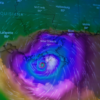The lack of access to digital technology in Africa is a significant challenge, particularly for persons with disabilities and underserved communities, according to a new report on digital rights and inclusion in Africa.
The 2022 Digital Rights and Inclusion Report- Londa, published by Paradigm Initiative, highlights the need for improved access to digital opportunities by women and girls, including Information and Communications Technology (ICT) education.
Despite government efforts to bridge the digital divide and build digital economies, men continue to outrank women in various indices, from the adoption and use of ICT tools to employment opportunities.
The report also points out the introduction of prohibitive levies and taxes that impede general access in countries such as Ghana, Malawi, and Uganda.
“Out of the 24 countries reported, only 17 have data protection legislation in place, and some have data protection bills with varying levels of progress towards implementation,” states the report.
The lack of accountability and oversight mechanisms for digital identification systems also presents privacy concerns.
The report noted Nigeria has taken steps towards a better data protection framework by releasing a draft Data Protection Bill and improving the Nigeria Data Protection Regulation, while the newly introduced Ghana card and e-levy bill present privacy concerns.
The report’s recommendations cover a range of stakeholders, including the private sector, civil society, governments, the media, and academia.
It also notes the need for rights-respecting Artificial Intelligence (AI) frameworks across all sectors as emerging technologies like AI gain traction while emphasizing the importance of implementing well-intentioned frameworks and strategies that safeguard human rights, accommodate emerging trends and issues, and are transparently implemented.
What does the report say about Kenya?
The report also discusses specific issues in various countries, such as the lack of tangible internet access laws in Kenya and the challenges with internet access in Angola.
The report discusses the state of digital rights and inclusion in Kenya, highlighting the high cost of internet access, which has led to the exclusion of youth and women, and violations of human rights such as the right to access information.
The report notes that the COVID-19 pandemic has brought to light the inequalities in access to the internet and digital technologies in Kenya.
Despite these challenges, Kenya has a largely independent judicial system, a robust Bill of Rights, and progressive judicial pronouncements to ensure digital rights are respected.
The report also mentions positive strides in digital rights and inclusion made in 2020, such as the appointment of a Data Commissioner and the enactment of the Data Protection Act.
However, concerns remain over the Huduma Number project, which collects citizens’ data without sufficient provisions for data protection, and the Computer Misuse and Cybercrimes Act, which has been criticized for infringing on freedom of expression.
While Botswana took a pro-Internet freedom stance with no credible reports of internet disruptions or government interference, Ghana was reported as the most repressive West African country in the first quarter of 2022, with 11 violations of press freedom recorded.
The Nigerian government also blocked online content and social media platforms, directing media groups to stop using Twitter and threatening legal action against Nigerians who accessed the service via circumvention techniques.




